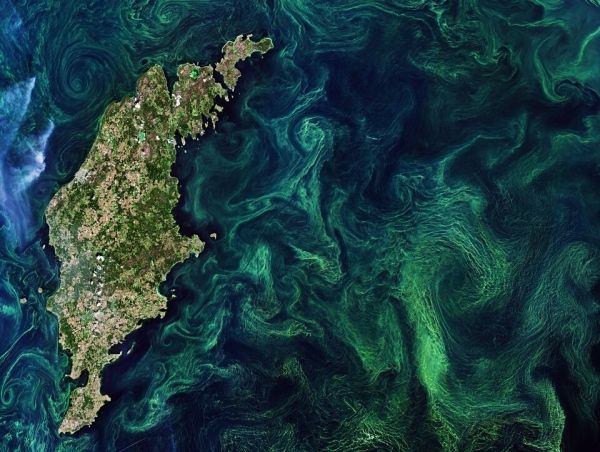Understanding the natural processes that influence phytoplankton primary production, and how they are changing as the planet warms, is vital. A new study, using data from the European Space Agency’s Climate Change Initiative, has produced a 20-year time-series of global primary production in the oceans – shedding new light on the ocean’s living carbon pump.
Phytoplankton, microscopic, free-floating plants in aquatic systems, play an important role in the global carbon cycle by absorbing carbon dioxide on a scale equivalent to that of terrestrial plants. Primary production is an ecologic term used to describe the synthesis of organic material from carbon dioxide and water, in the presence of sunlight, through photosynthesis.
Even small variations in primary productivity can affect carbon dioxide concentrations, as well as influencing biodiversity and fisheries.
Continue reading at European Space Agency
Image via European Space Agency


